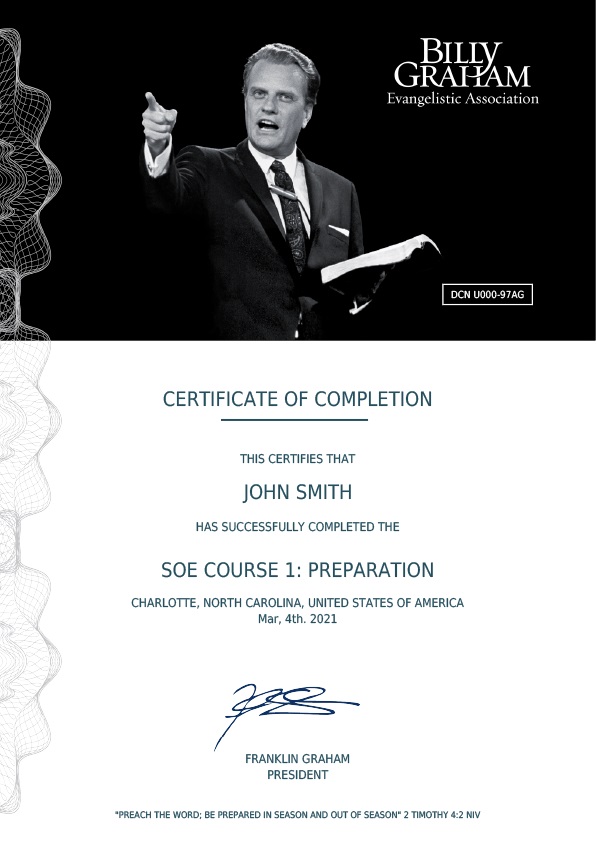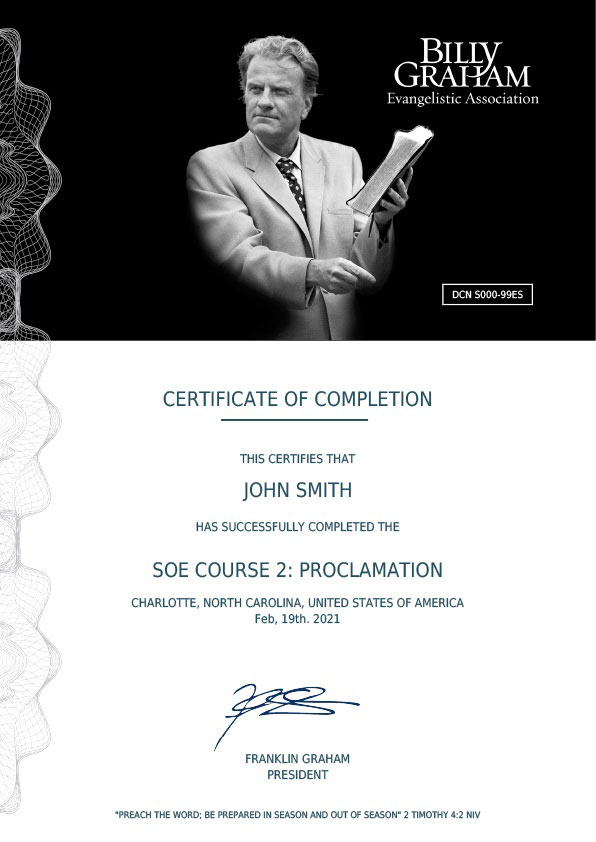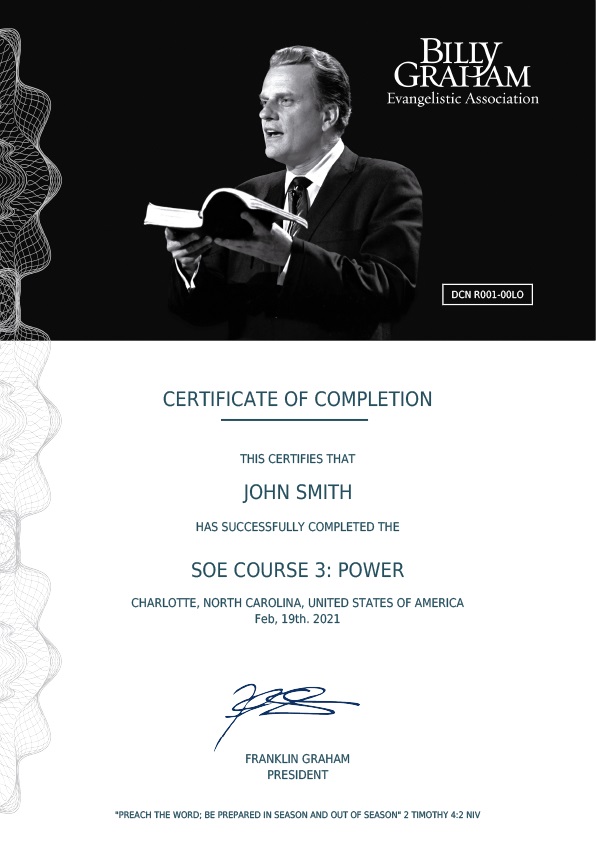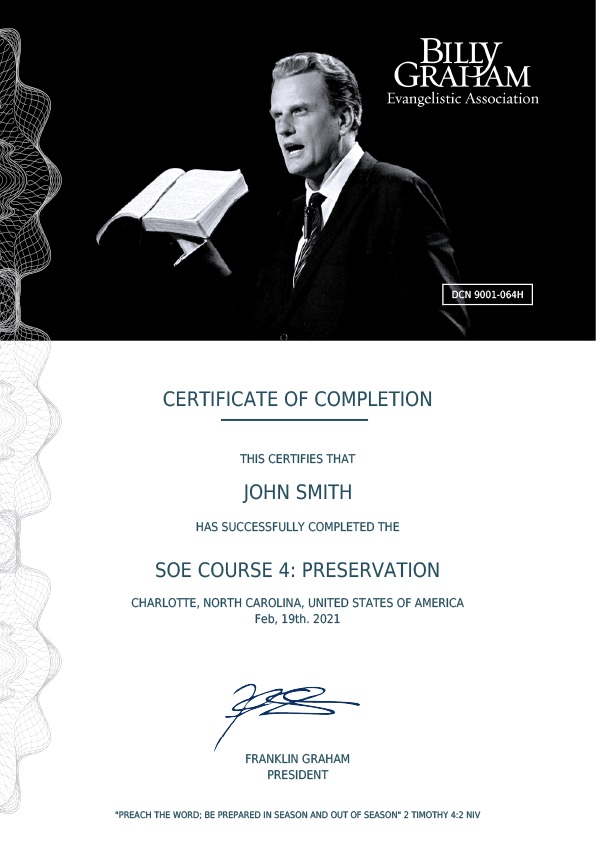Proclamation presents how to become an evangelist using valuable insights on preaching the timeless message of the death, burial, and resurrection of Jesus Christ and calling for a response of repentance and faith. Through the development of three sermons, you will discover the distinctive points of an evangelistic message, the principles of preparing an evangelistic message, the effective delivery of the message, and the essentials of giving a clear and compelling invitation.
The Proclamation course has four lessons:
- What is an evangelistic message?
- How to prepare an evangelistic message
- How to deliver an evangelistic message
- How to give an evangelistic message
In this section, you will see how to become an evangelist and the importance of presenting the Gospel as defined in 1 Corinthians 15:3−4. You will also discover the important elements of the evangelistic message. These elements include the aim, the appeal, the content, and the form of the message.
You will learn how to become an evangelist and how to prepare a powerful evangelistic message as you study the value of the Bible, the necessity of prayer, the organization of materials, and patterns of preaching. The Bible stresses the need to prepare yourself to present the Gospel. The content of the Gospel message is all-important, but the way we share it is also crucial.
Paul tells how he shared the Gospel in 1 Thessalonians 1:5. You will learn how to become an evangelist and how to develop and deliver a powerful Gospel message that will call people to turn from sin and place their faith in the finished work of Christ on the cross. The urgency of responding to the Gospel is presented in 2 Corinthians 6:2.
You will learn how to become an evangelist and how to effectively give an invitation that will call people to a definite, life-changing decision to receive Jesus Christ as Lord and Savior.










